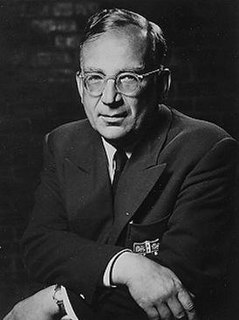A Quote by Margaret Wertheim
This is what I call the "cosmological problem" of science. Science has the instrumental function that has given us computers and so on, but its cosmological function is to give us a picture of the world we inhabit as human beings, and on that level it's failing a vast number of people.
Related Quotes
I have an abiding interest in how ordinary people produce knowledge, and what it means for individuals to know the world. I thought I'd be a theoretical physicist because I love physicists' views of the world - I find general relativity and quantum theory thrilling - but I have always felt uneasy with the idea of an Ultimate Truth. One of the functions of science is to help us instrumentally; it helps us to build things like microchips and GPS satellites. But another function of science in the modern world is to help us feel "at home in the universe".
Much later, when I discussed the problem with Einstein, he remarked that the introduction of the cosmological term was the biggest blunder he ever made in his life. But this "blunder," rejected by Einstein, is still sometimes used by cosmologists even today, and the cosmological constant denoted by the Greek letter ? rears its ugly head again and again and again.
The essence of religion is inertia; the essence of science is change. It is the function of the one to preserve, it is the function of the other to improve. If, as in Egypt, they are firmly chained together, either science will advance, in which case the religion will be altered, or the religion will preserve its purity, and science will congeal.
Over time, I started becoming more aware of the vastness and complexity of the universe, which led me away from any sort of conventional Christianity. I still love the teachings of Christ, but I also believe that the human condition prevents us from having any true objective knowledge of the universe. All human belief systems are inherently flawed. If I had to label myself now, I'd call myself a Taoist-Christian-agnostic quantum mechanic. Also, there's nothing in the actual Bible that limits a Christian in their interest in science. Anti-science is a function of ignorant fundamentalism.
A lot of humanists treat religion as if it were simply a kind of rival cosmological hypothesis, and that this is all it is. My view is that to the extent that religions are cosmological hypotheses, this is not the only important thing about them, and we - atheists- will never get a proper understanding of what religion is if we focus too much on the cosmology.
Human beings either function as individuals or as members of a pack. There's a switch inside us, deep in our spirit, that you can turn one way or the other. It's almost always the case that our worst behaviour comes out when we're switched to the mob setting. The problem with a lot of software designs is that they switch us to that setting.
I believe in rendering to science the things that belong to science. I have no problem with evolution or discussions of the age of the Earth, for I don't believe that we come anywhere near comprehending the mind of God or the workings of the universe. Science can explain a lot, but it cannot give us faith, and I think we need both.
We live in a scientific age, yet we assume that knowledge of science is the prerogative of only a small number of human beings, isolated and priestlike in their laboratories. This is not true. The materials of science are the materials of life itself. Science is part of the reality of living; it is the way, the how and the why for everything in our experience.



































